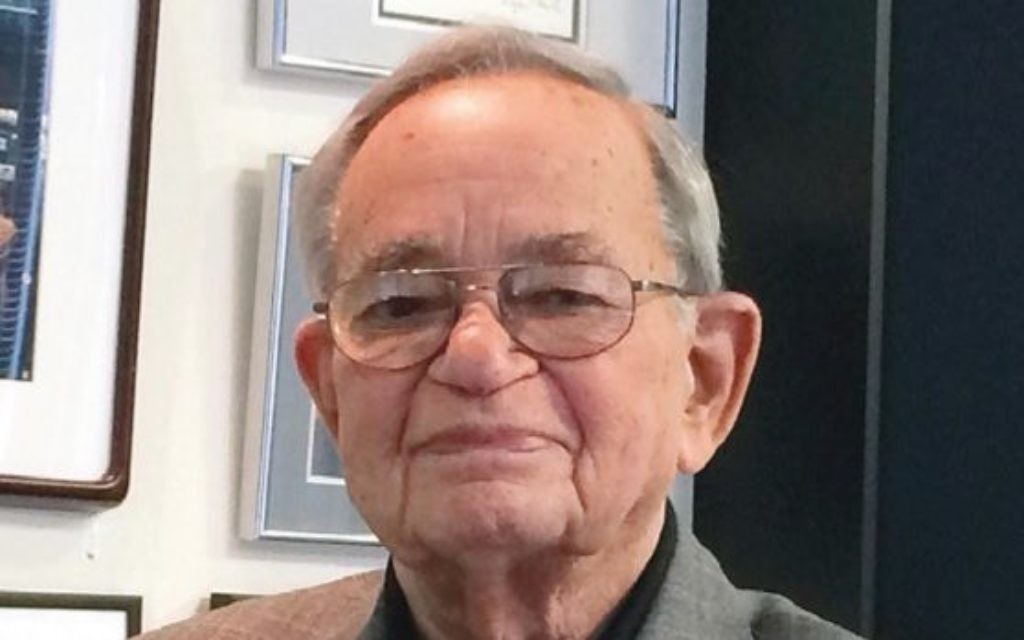Survivor Devoted to Honoring Righteous Japanese
Leo Melamed, featured in a documentary at the AJFF, is speaking at Am Yisrael Chai's Holocaust remembrance.
The annual Holocaust commemoration of Am Yisrael Chai provides a free sneak peek at the subject of one of this year’s Atlanta Jewish Film Festival documentaries and a reminder of a narrative feature the festival screened two years ago.
Leo Melamed and Chihiro Sugihara are the scheduled speakers at the Holocaust education and anti-genocide organization’s Conscience and Action event Sunday night, Jan. 21, at the Westin Atlanta Perimeter North in Sandy Springs.
Melamed was one of perhaps 6,000 Jews who escaped the Nazis with transit visas issued by Chiune Sugihara, who was the Japanese consul in Lithuania early in World War II. Chihiro Sugihara is one of the diplomat’s grandchildren.
Get The AJT Newsletter by email and never miss our top stories Free Sign Up
Sugihara issued more than 2,000 visas, each good for a family, after his government three times told him not to.
“This individual stood up for what is right. I’ve lectured all over the world, where I can, to make that point,” Melamed said in a phone interview. “This is a great man, and it should be remember in history.”
Hiroki Sugihara, the consul’s son, was 5 years old in the summer of 1940 when his father decided to issue the visas. Melamed said he heard the story from Hiroki after they had a chance meeting in Tokyo around 1980 and became friends.
Hiroki said his father explained to the whole family that the Jews had done nothing wrong and that he would be violating the dictates of his G-d (he was Christian) if he followed his government’s orders. Although he was putting his own family in jeopardy and later was punished, Sugihara gave out all the visas he could.
The story is dramatized in “Persona Non Grata,” which the AJFF screened in 2016.
The major difference between Oskar Schindler and Sugihara, Melamed said, is that Schindler benefited from protecting Jews because they worked for him. Sugihara got nothing but trouble for doing the right thing.
That’s one of two messages he wants people to take away from the story of Sugihara, who was named one of the Righteous Among the Nations by Yad Vashem in 1985 and recently was named the most admirable Japanese person in history in a poll in Japan: People can stand up and recognize evil from good.
Sugihara chose to help his fellow man, and “that is way up there in terms of deeds and courage and all the things that you can think of by being one of the righteous,” Melamed said. “I agreed with Hiroki to do everything I could in my life to sanctify his deeds.”
The other message, he said, is that each individual can effect major change. “Here is an example of one person changing the lives of thousands,” with the cascading effects of the things those thousands and their descendants have done.
Few have gone on to more prominence than Melamed, the chairman emeritus of the Chicago Mercantile Exchange. He changed the world of futures trading twice: first by inventing financial futures (bidding on the future values of currencies, stock indexes, gold, etc.), then by created the computerized Globex system, which made it possible for anyone with an Internet connection to trade and led to the end of the “open outcry” system of people buying and selling commodities contracts in a big pit in Chicago (as seen most famously in “Trading Places”).
“This country, you know, it’s a miracle,” he said, to enable a penniless refugee to reach the highest levels of business and industry.
The Japanese government gave Melamed its highest honor, the Order of the Rising Sun, Gold and Silver Star, in November for his work in the global financial markets, his efforts in U.S.-Japanese relations, and his success at spreading the Sugihara story.
“You don’t get to meet the emperor on daily walks to the grocery store,” he said.
Melamed’s financial career and the turmoil of modernization on the Chicago trading floor are the cornerstones of the AJFF documentary “Futures Past,” the work of Melamed’s filmmaker son, Jordan.
The film deals briefly with the Melamed family’s first visit back to his Polish hometown, Bialystok, in 2000, a trip that inspired him to write a dramatic, award-winning essay, “There Are No Jews in Bialystok.”
Melamed said his father never wanted to go back because there was nothing in Poland for him. “I could understand it intellectually. But when I went there, I understood it physically.”
What: Holocaust observance
Where: Westin, 7 Concourse Parkway, Sandy Springs
When: Exhibit at 6 p.m., program at 7, Sunday, Jan. 21
Admission: Free; must RSVP to www.2018remember.eventbrite.com





comments